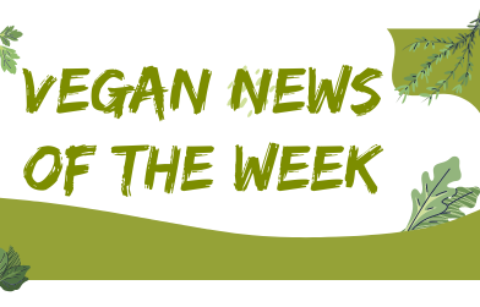Stallone, when he gets to his feet, responds with a left hook fierce enough to knock out most puny mortals. But for the old slugger who once played Terminator, it prompts only a chuckle. “You punch like a vegetarian,” he says, in that unmistakeable Austrian drawl.
Yesterday, Arnie was back opining once more on the subject of eating meat. On this occasion, speaking at the UN Climate Conference in Paris, the views of the 68-year-old bodybuilder turned actor turned politician were rather more cerebral – and surprising.
During an interview following a speech to the conference, Arnie, the former governor of California, claimed 28 per cent of all greenhouse gases are caused by intensive farming. As a result, he said, it was a “good idea” for people to stop eating meat altogether and at the very least stop for one or two days a week. “Luckily we know you can get protein in many different ways,” he said.
Arnie’s comments come at a time when an increasing number of experts are clamouring for us to turn vegetarian or, better yet, leave that butter dish in the fridge and go all out vegan.
There is growing evidence of the strain our meat consumption is placing on the environment, with every 1kg of meat protein requiring the same amount of energy to produce as between 3kg and 10kg of vegetable protein. Last year, the UN Food and Agriculture Organisation released a report that claimed emissions from farming, forestry and fisheries had nearly doubled over the past half century and may increase by another 30 per cent by 2050.
Most of those emissions emanate from nitrogen fertilisers, and windy cows, but are exacerbated by the swathes of forests cut down to accommodate the animals.
But the call to go meat-free stems not just from concerns over climate change. A new government review on antibiotic resistance, published yesterday, warns that a prevalence of superbugs in rare steak and undercooked meats is now putting lives at risk. The review found the use of antibiotics in agriculture represents a “critical threat to public health,” with increasing drug-resistant strains that could be passed from animals to humans.
Lord O’Neill, former chief economist at Goldman Sachs, said the level of antibiotics being prescribed in modern day farming was “staggering”.
The persistence – and severity – of such warnings do seem to be making a difference. Some 12 per cent of us in Britain now follow a meat-free diet. According to The Vegan Society, the number of vegans in the UK has doubled in the last nine years from 150,000 to around 300,000.
Bolstering their ranks is Barny du Plessis, a 41-year-old bodybuilder from Norwich who last year won Mr Universe. He turned vegan 10 months ago with his fiancée Josie, who is also a body builder, partly for the environment and partly because meat-eating aggravated his hernias.
“All those problems disappeared,” he says. “I was suddenly making leaner, better gains and my alkaline balance is really good. I never feel tired.”
To maintain his current off-season weight of 16 stone, du Plessis eats a mammoth daily 5,000 calories worth of brown rice, lentils, chickpeas, beetroot juice, coconut oil and seeds a day. He also scoffs 500g of oats – an entire bag’s-worth. “The environment is more important to me than my taste-buds,” he says.
Du Plessis is one of a number of vegan athletes filmed for a new documentary which has Terminator director James Cameron as executive producer – whom Arnie namechecked in Paris as a close friend, and fellow meat denier. It aims, says director Louie Psihoyos, “to dispel the world’s most dangerous myth – that men need animal protein to be a real man.”
Du Plessis agrees. “In the body-building world there is this whole link between eating meat and being a man. A lot of people have messaged me saying they are really behind what I’m doing. But there has been a lot of resistance and hatred as well.”
Of course, your average vegetarian doesn’t give two hoots about all that. They are more concerned about whether or not a meat-free diet can provide all the nutrients humans need. So it was for health journalist Anna Magee, the editor of healthista.com, when earlier this year she decided to embark on a 60-day trial of veganism and measure the effect on her health.
The 46-year-old from East London says she lost six kilos, her cholesterol level plunged, and at the same time her muscle mass went up. She remains a vegan.
“By the end of 60 days I thought I would be really craving a steak, but I just didn’t want it,” she says. “I really don’t want to be this vegan bore environmentalist type person but the arguments [against eating meat] are just so strong.”
She says the most difficult thing to counter at first was the “psychological deprivation” of not eating meat, “the smells and rituals” of a shared meal out with friends. Her husband of 16 years, Kevin, remains a meat eater, but fortunately one willing to take part in her new supper menus of nut burgers, tofu stir-fry and bean casseroles.
This Christmas, as with the last, Magee will be roasting a turkey and ham – but she will also be preparing a nut roast to eat on the side. “I would never stop cooking meat for people and I would never make people go to a vegan restaurant,” she says. “I try and work it around life.”
Yet some medical experts are not so convinced by the health benefits of giving up meat entirely. Professor David Haslam, a former GP and president of the British Medical Association, insists he will never turn vegetarian.
“I love eating meat,” he says. “The important thing is you have to be very careful what you eat, where it comes from and how it is prepared. Meat is part of a normal mixed and balanced diet. There are certain things you can only get from animal products. Humans have been eating it for tens of thousands of years. It can’t suddenly be bad for us.”
Laura Piddock, professor of microbiology at the University of Birmingham and director of Antibiotic Action, which helped with the latest government report on antibiotic resistance, similarly denies that giving up our meat habit is the answer to solving the growing crisis within our environment and food chain.
“That has been suggested by some, but we are omnivores,” she says. “We have to recognise that eating meat is a part of our diet and that we farm animals to eat them. Instead we need to start realising that if we are going to start eating these animals then we need to look after them.”
For the likes of Barny du Plessis, the time for that has already passed. Tonight he will wolf down his evening meal of oats, mixed seeds, frozen berries and “vegan protein” with more than customary relish.
The Arnie intervention has, he says, put a “full stop” to this particular debate. Vegetarians are taking over, and watch out – they still can land a mean right hook.
















